Growing Up with Alcohol: How Drinking Became Normalised Early
Growing up in the UK, I became aware of alcohol from a very early age. Not in a negative light, thankfully, but a positive one. As far as I could tell, alcohol was the key ingredient to any cause for celebration. Family barbecue? Alcohol! New Years Eve? Alcohol! Losing my first tooth? Alc… no not really, but you get the idea. Alcohol was woven into the fabric of every significant event, so it became natural for me to associate it with happiness, connection, and celebration.
Looking back, my relationship with alcohol started long before my first drink. I used to love how adults opened up more, became funnier, and said things they wouldn’t normally after a few drinks. I remember going to Scotland for New Years parties with two other families and hearing the parents up all night drinking wine and playing the card game Uno. In short, I couldn’t wait to grow up and finally experience for myself what I saw as the ultimate key to fun.
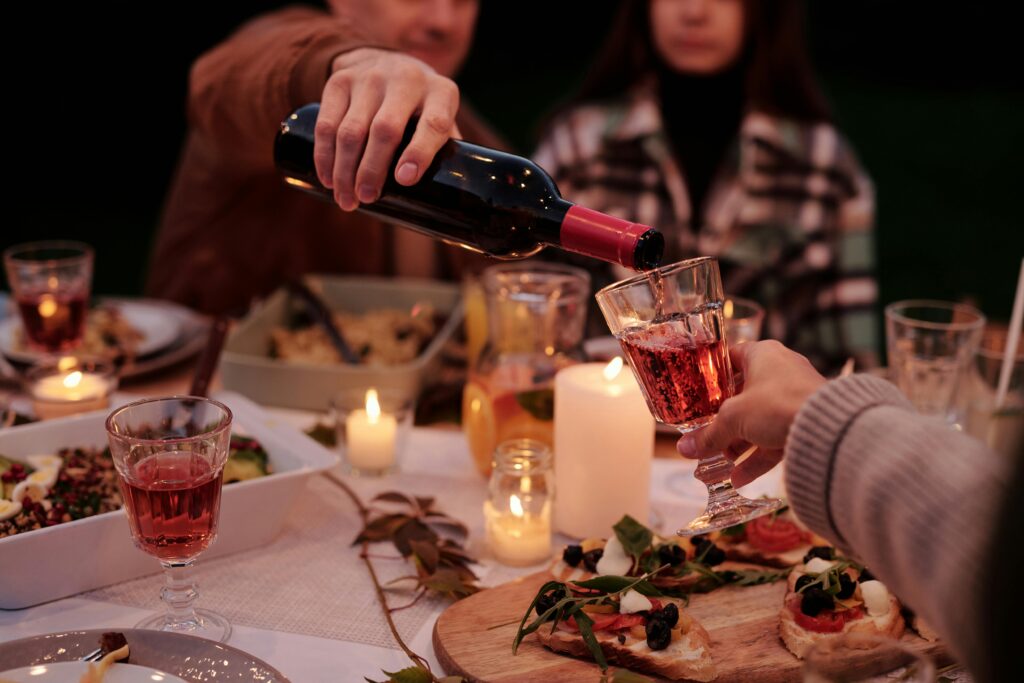
My First Experiences with Alcohol: The Teenage Excitement
As I got older, I was occasionally allowed a sip of beer or wine here and there, though the taste was appalling. Constantly told I’d grow to like it—just like I was supposed to grow to like olives—I thought I simply had to be patient. It became a big deal among my friends and me, wondering when and, perhaps more importantly, how we would first get drunk.
My first real experience with alcohol was no different from many teenagers in the UK: someone’s older brother bought it for us. I was 15 years old, and the excitement was palpable. Crates of Strongbow and Fosters were bought, and we headed to a friend’s house with not-so-strict parents. This became a regular theme for weekends as we approached that seemingly magical age of 18.
At the time, alcohol felt new and exciting. It gave me a surge of confidence, allowing me to talk to people I’d normally shy away from in the cold light of day. I didn’t realise it then, but that was one of the first signs that alcohol wasn’t as harmless as it seemed. Over time, it became something I relied on for social confidence. When I moved to a new city for university, I drank every night for the first two months. Unfortunately, that’s not an exaggeration, even though it sounds like one. The bigger issue? I wasn’t alone. With 12 years of hindsight, I now see that we were all dealing with our own anxieties, and alcohol was the easiest solution—readily available at the many late-night off-licences surrounding our halls of residence.
After settling into my university routine, I soon found myself working at a bar. Unsurprisingly, working in a bar did nothing to slow down my drinking. Around this time, the second major warning sign became clear—I didn’t have an off switch. I’m not sure why it took so long for this to manifest, considering I’d already been binge drinking for three years, but it was likely because a behavioural pattern had started to form. The first time I truly felt ashamed was when I lost my university halls key. Rather than pay the fine for a replacement, I decided to call the police and claim I’d been robbed. The police came to my halls, woke up the on-site caretaker to let me in, took my statement—which they quickly realised was nonsense—told me not to waste their time, and left. I was very lucky it ended there.
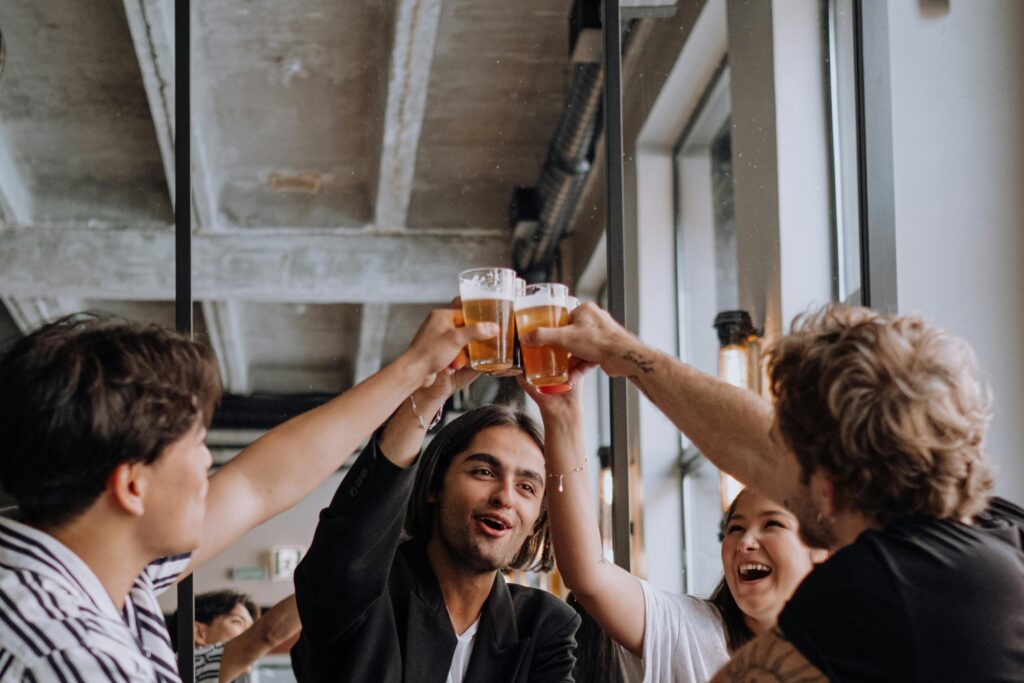
The Breaking Point: When Drinking Took Over
This was, unfortunately, only the beginning. Over time, I’ll write more about the many experiences that eventually led me to stop drinking altogether, but for now, let me summarise by saying it got bad. The combination of feeling like I needed a drink to socialise, paired with having no off switch once I started, caused chaos in all aspects of my life.
I should clarify that once I left university, moved to a new city, and secured a graduate job, I was only drinking on weekends. I remember thinking at the time, “How can I have a problem with alcohol? I’m not drinking every day, and I’m not physically addicted.” What I failed to see was the serious harm I was causing to my mental health every single weekend. Even though I wasn’t a daily drinker, my binge drinking was wreaking havoc.
Despite this, I hadn’t fully accepted that I had a problem. By now, I had started experiencing full-on blackouts, which were both confusing and terrifying. The night would always start out positively, with pre-drinks at my or a friend’s flat, followed by heading into the city for more drinks and dancing at one of the many nightclubs open into the early hours. The cycle became predictable: I’d have a great time with my friends before heading out, but once we got to town, I’d be knocking back double spirit mixers like there was no tomorrow. Then, suddenly, I’d wake up in my bed with no memory of how I’d gotten home. I was extremely lucky to live with a friend who often made sure I got home safely, though I could sense his patience was wearing thin. I should note that these blackouts didn’t happen every time, but that only made it harder for me to confront the problem. The nights when I’d drink heavily and still remember everything reassured me that my drinking was under control, which kept me trapped in the cycle.
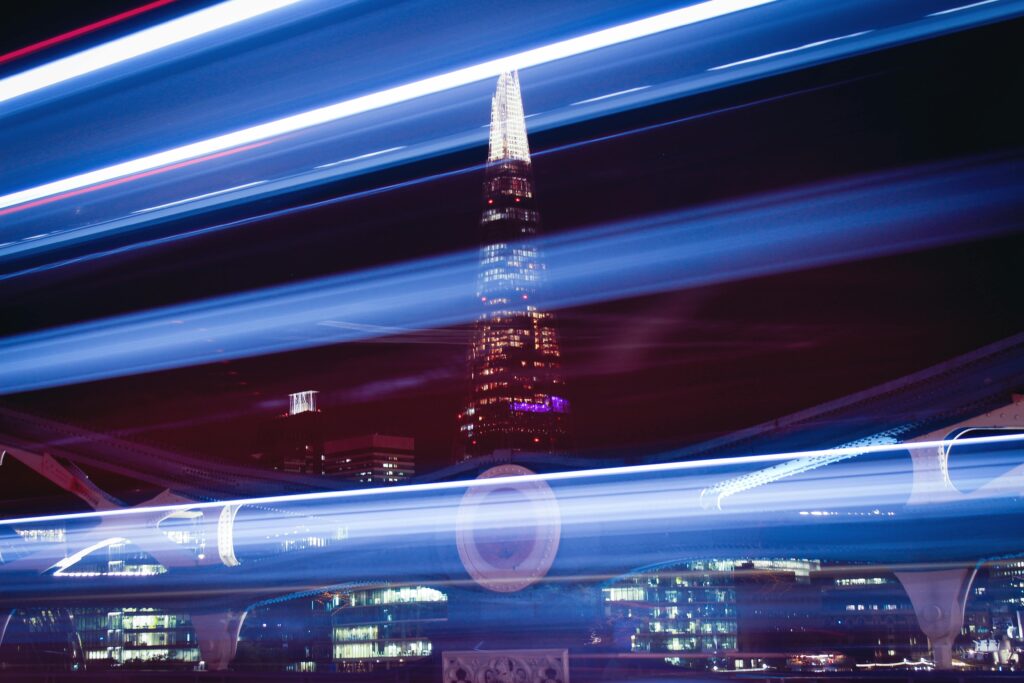
The Anxiety After Blackouts: My Routine After Heavy Drinking
The anxiety I felt after waking up from a blackout was unbearable. My routine for dealing with the aftermath had become almost automatic:
- Wake up and try to figure out where I was, followed by a small panic while checking to make sure I had my phone, wallet, and any other possessions I’d gone out with.
- Bury my face in the pillow and attempt to recall the events of the previous night.
- Gingerly unlock my phone and check for messages. If I hadn’t received any, I’d message someone I knew I was with, saying something vague like, “I do not feel well.”
- Based on their reply, I’d assess whether I had upset anyone. If it seemed I had, I’d try to figure out who I needed to apologise to.
- Apologise to the person I’d wronged, often with excuses like, “I really overdid it last night,” or “I should’ve eaten beforehand.”
This routine happened so often it seems absurd to me now. I sometimes sit back and realise just how lucky I am that so many people stuck by me through those years of binge drinking. Of course, not everyone did—and I completely respect and understand that. I often wonder if there will ever be a chance to reach out and apologise for my behaviour without reopening old wounds. Back then, I struggled to reconcile the person I was sober with the person I became when drunk. That disconnect was hugely problematic because it made it hard for me to fully accept responsibility for my actions, even though I thought I was doing so. After a few particularly damaging benders, I knew it was time to step away from alcohol. I wasn’t ready to quit entirely, but I was determined to take a break.
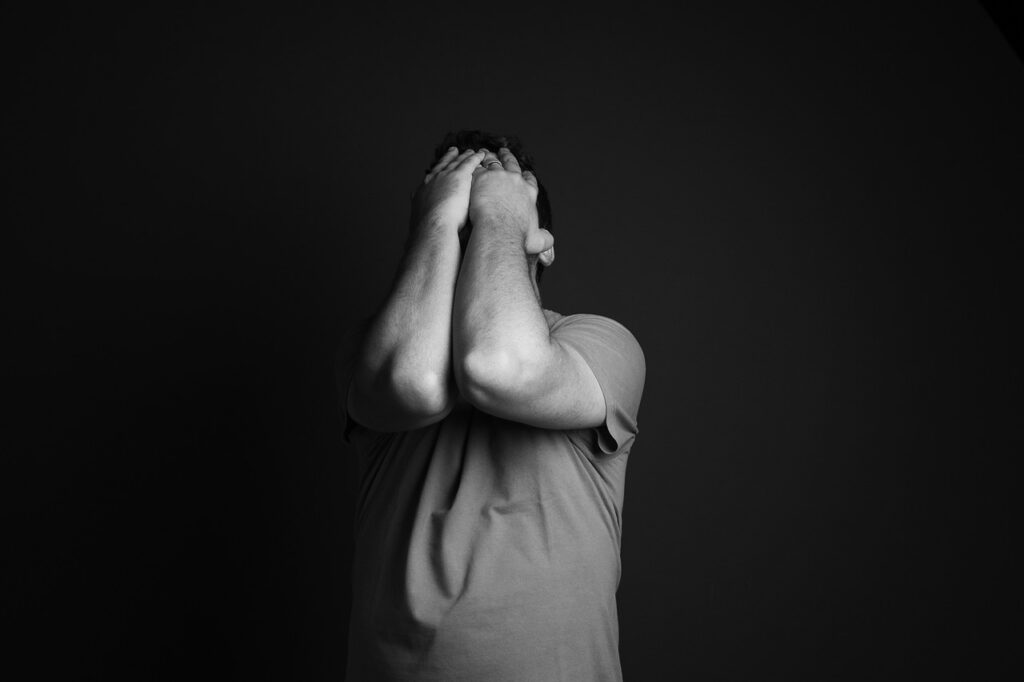
Social Pressure and Relapses: Why Staying Sober Was So Difficult
With Christmas approaching and a new job in hand, I found myself in yet another new city. The change was exciting, and I felt confident that this time alcohol wouldn’t get in the way. In the early weeks, it was fantastic. I experienced what’s known in sober circles as “pink cloud syndrome”—that initial euphoria where everything seems perfect. I felt on top of the world and even started telling my friends I was done with drinking for good, much to their bewilderment.
My first real test came at the office Christmas party. The company I worked for was a small, intense startup, and our Christmas celebrations reflected that. We rented out a section of a lively city-centre venue, complete with a live oompah band and unlimited steins of German beer. It was always going to be a challenge, but I was still riding high on optimism and told myself I could handle it.
A few hours into the night, a colleague pulled me aside, clearly frustrated. “What’s your problem?” he asked. Confused, I asked what he meant. “I don’t understand how you’re having fun. You’re not drinking, and that’s really weird,” he said. His comment caught me off guard. I knew it was just a drunken remark—something I might have said in the past—but it stuck with me. I managed to stay sober for another month or so, but living with two other men in their late twenties made it tough. The social pressure, combined with my own weakening resolve, eventually got the better of me. Before long, I slipped back into my old habits, and the cycle of drinking started all over again.
Finding My Way to Sobriety
What followed were two more years of binge drinking. I tried desperately to find ways to force myself to moderate because, at the time, it seemed impossible to maintain my friendships while giving up alcohol. My last “big idea” was to eat excessively before every drinking session. This actually worked for a while, but naturally, it caused my weight to balloon. As I approached my thirties, I knew that wasn’t something I could easily shake off.
All the energy I wasted trying to figure out how to drink “normally” was taking a toll on my mental health. I was either anxious about what I’d done while drunk or anxious about how to prevent myself from making poor decisions whilst drunk. It was exhausting, and I knew it couldn’t go on. During this time, I found comfort in reading books on sobriety, particularly Catherine Gray’s fantastic The Unexpected Joy of Being Sober. It was reassuring to realise I wasn’t alone in feeling this way and that there was a way out. I decided that my 30th birthday would mark my last drink. To make it more palatable for my friends, I framed it as taking a break for a year—but deep down, I knew it was over. I’d spent far too many days crippled by anxiety, all of which stemmed from the same source. I was determined to cut alcohol out for good.
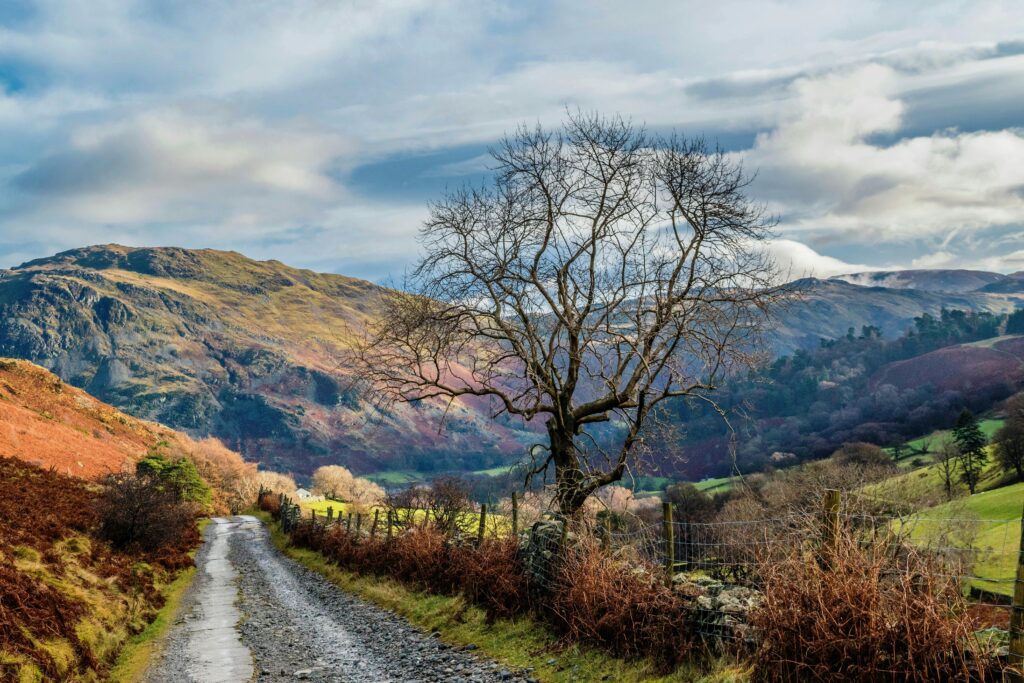
My Sobriety Today: Sharing My Story to Help Others
As I write this, it has been 8 months since my last drink. Looking back, it’s hard to believe it took me so long to make the change, but I now understand why. I want to use this space to document my journey and emotions, sharing everything I’ve learned over the years. Before discovering that others faced similar struggles, I felt hopeless and lost. My hope is that by sharing my experiences, I can help others find their way too.
If you’ve been on a similar journey or struggled with alcohol, I’d love to hear from you. Let’s share our experiences and support one another—leave a comment below, or feel free to get in touch at bigcitysober@gmail.com.
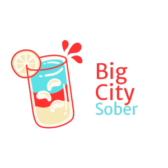
Pingback: What About Moderation? Why I Chose Full Sobriety Instead of Cutting Back – Big City Sober